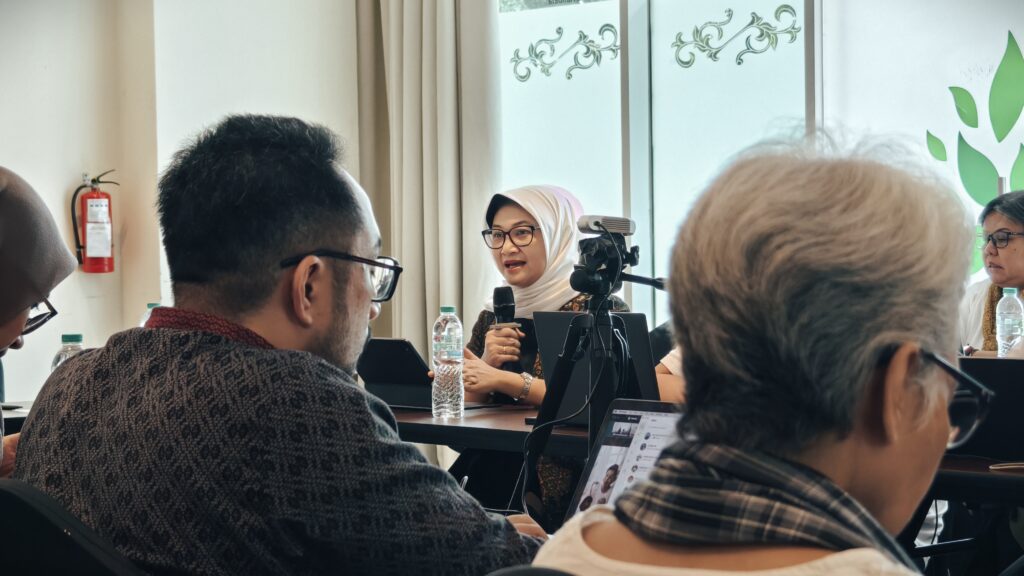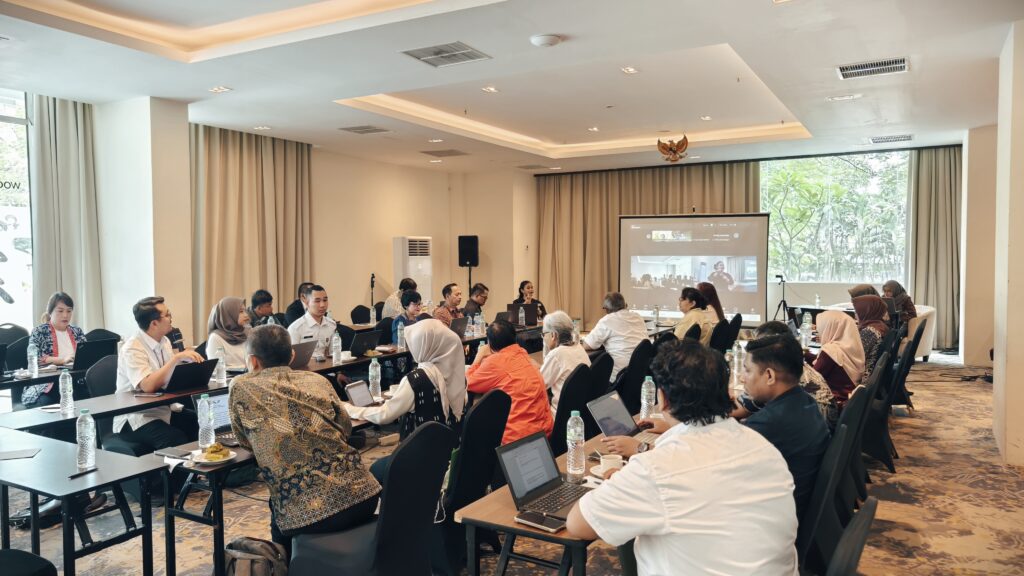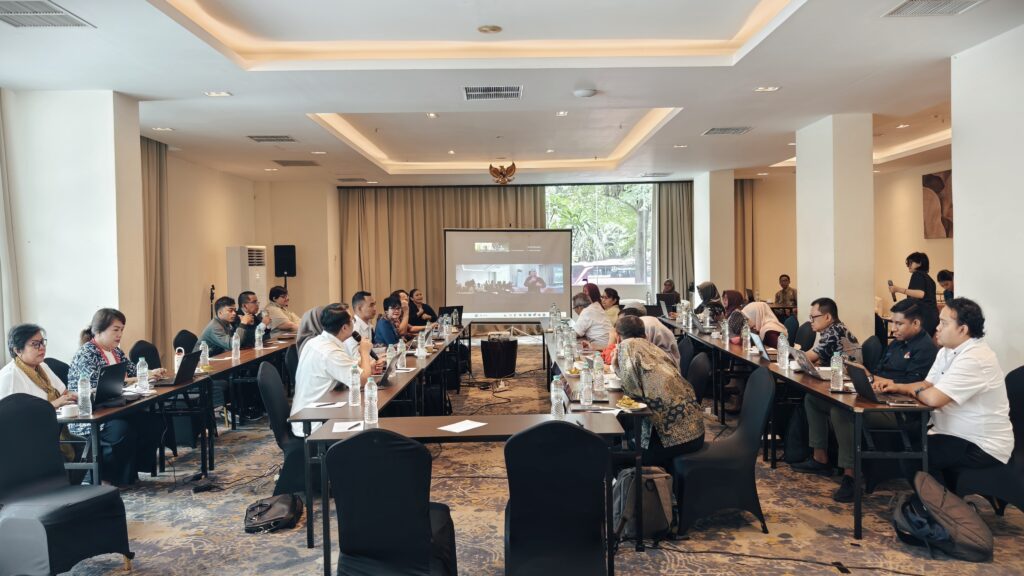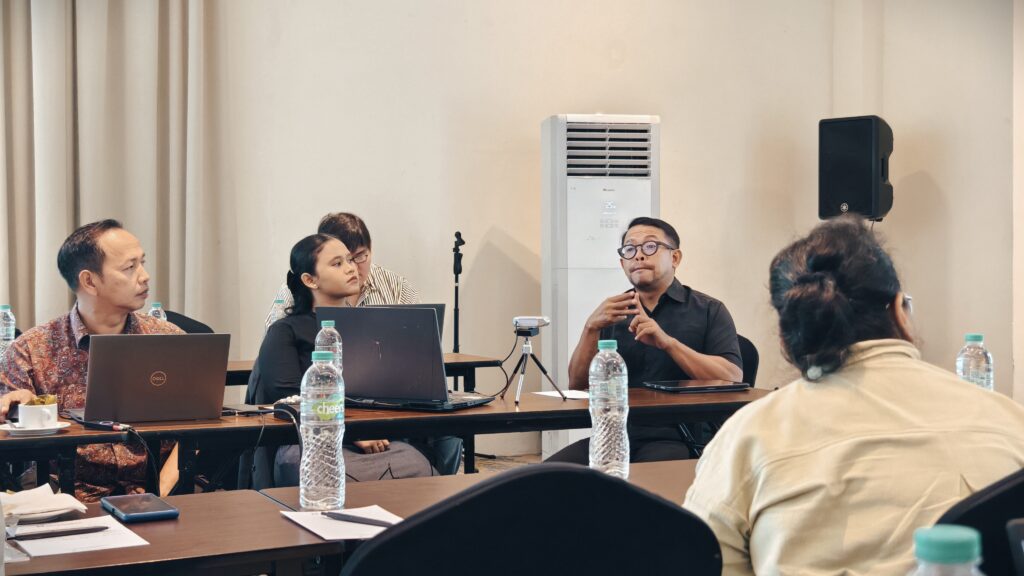Public Consultation on the Guideline for the Participation of Vulnerable Groups: Ensuring Community Input for Inclusive Development
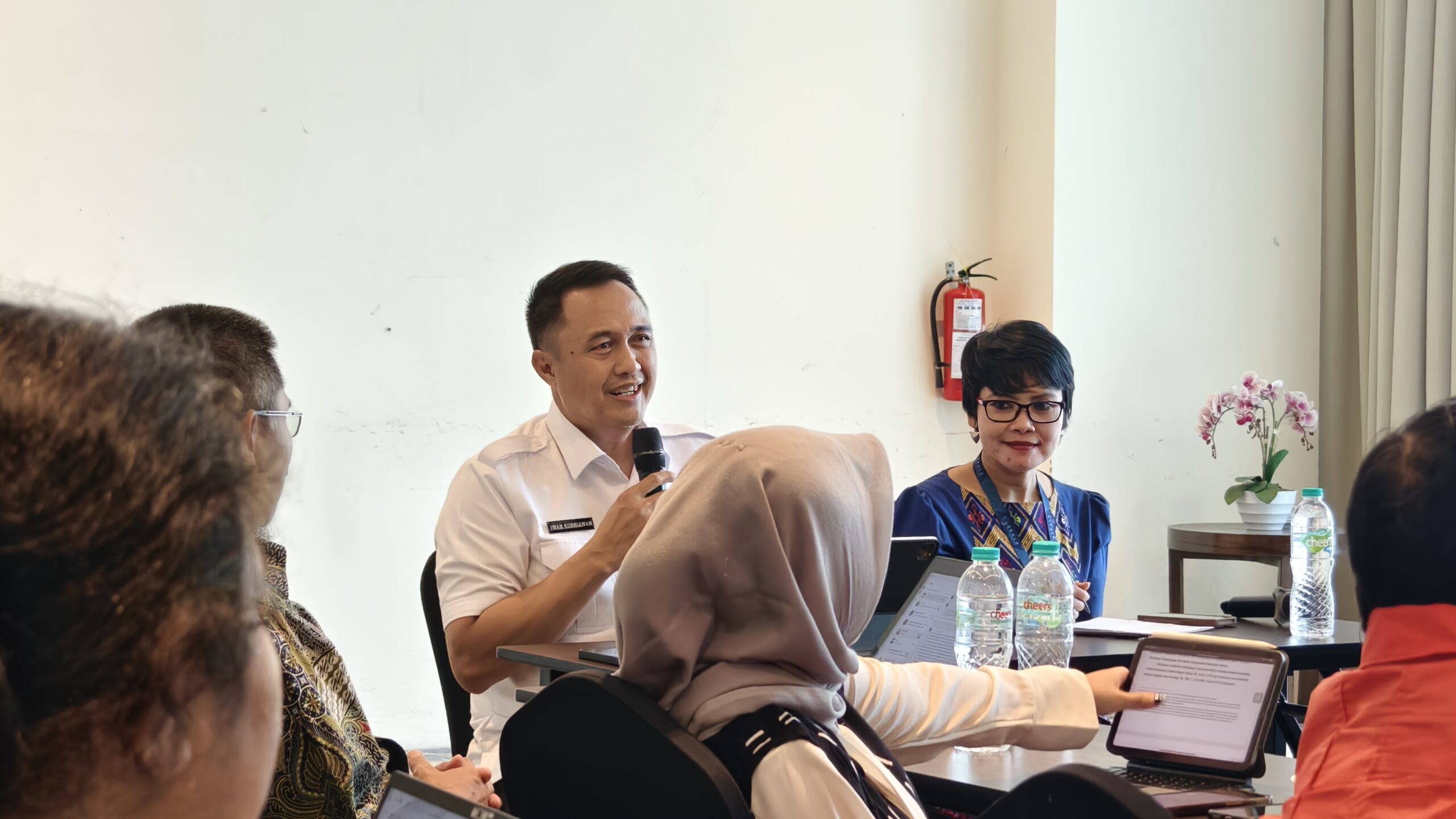
Gender equality and social inclusion are key priorities in Indonesia’s development agenda, as reflected in national planning documents. To ensure this vision is realised and delivers real benefits, especially at the regional level, it is essential to strengthen meaningful participation of vulnerable groups in development planning and budgeting. In support of this, the Directorate of Regional Development Planning, Evaluation, and Information (PEIPD) of the Ministry of Home Affairs has drafted a Guideline on the Participation of Vulnerable Groups in Development Planning. To refine the draft, a Public Consultation on the Guideline was held in a hybrid format in Jakarta on 22 October 2025.
Around 100 participants from ministries, government agencies and civil society organisations (CSOs) attended the consultation, including representatives from the Directorate of Poverty Alleviation and Social Welfare (PKKS), the Directorate of Family, Women and Children of the Ministry of National Development Planning/Bappenas, the Ministry of Women’s Empowerment and Child Protection (KemenPPPA) and the National Disability Commission (KND). Representatives from a range of CSOs, including women’s organisations, disability organisations, organisations working with older persons, and regional planning offices (Bappeda) from SKALA partner provinces, also participated and provided input.
Public Participation as a Constitutional Right
Law No. 23/2014 on Regional Government requires local governments to promote public participation in governance. The operational provisions for this participation are set out in Government Regulation No. 45/2017, which covers public involvement in regional governance, including long-term, medium-term, and annual development planning.
The participation mechanism referred to is the Musrenbang (Development Planning Consultation Forum). The guideline is necessary because Musrenbang processes are often conducted only as a formality or symbolic gesture, without meaningful involvement of vulnerable groups. The draft guideline considers national regulations that already mandate thematic planning forums for persons with disabilities and older persons, such as Regulation of the Minister of National Development Planning/Bappenas No.3/2021 on the National Action Plan for Persons with Disabilities (RAN-PD) 2021-2024 and Presidential Regulation No.88/2021 on the National Ageing Strategy.
Iwan Kurniawan, Director of Planning, Evaluation, and Information, emphasised the importance of ensuring participation from all groups to uphold the principle of “No One Left Behind.”
Tirta Sutedjo, Director of Poverty Alleviation and Social Welfare at Bappenas, added that the guideline is important to ensure that regional development policies and plans are inclusive, participatory, and grounded in data.
“At the national level, we and the PEIPD Directorate can jointly oversee this process. The Ministry of Home Affairs has issued a circular encouraging local governments to prepare regional regulations on persons with disabilities, while Bappenas has mandated the preparation of Regional Action Plans for Persons with Disabilities. These provide a strong legal foundation and must be monitored to ensure effective implementation,” she said.
Bridging Policy and Practice
Qurrota A’yun, Director of Family, Parenting, Women, and Children at Bappenas, emphasised that the Guideline on the Participation of Vulnerable Groups can bridge national policy commitments with implementation at the regional level. Inclusive principles are already embedded in the National Long-Term and Medium-Term Development Plans. However, implementation on the ground remains inconsistent due to the absence of a standard reference, particularly for promoting gender-responsive and inclusive Musrenbang processes.
“We need a standard guideline, but it should also allow flexibility so each region can adapt it to its capacity and planning processes. The guideline does not need to stand as a separate thematic document; instead, it should be integrated into the regular Musrenbang mechanisms that already exist, with strengthened principles of equality and inclusion,” she said.
During the consultation, the Provincial Government of East Nusa Tenggara (NTT) represented by the Head of Bapperida NTT, Dr Alfons Theodorus, presented its experience implementing the Inclusive Musrenbang for Vulnerable Groups (MUSIK KEREN). Supported by regional regulations, MUSIK KEREN ensures that the aspirations of vulnerable groups, such as persons with disabilities, women, children, older persons, Indigenous communities, and people living with HIV/AIDS, are incorporated into official regional development documents. More than 200 proposals were collected through online and offline outreach across 22 regencies and municipalities, thematic discussions, joint verification with technical agencies, and the tagging of proposals in the Regional Government Information System (SIPD).
CSOs, including Institut KAPAL Perempuan and Aisyiyah — partners of the INKLUSI development program— shared their experience in facilitating thematic Musrenbang for women and older persons. KAPAL Perempuan highlighted the importance of government–civil society partnerships in building Musrenbang processes that are open, accountable, and genuinely participatory. Effective participation, they noted, is strengthened by community organising, community capacity building, and the use of data and evidence in shaping proposals.
CSOs agreed that gender-responsive and inclusive principles must be fully integrated into all Musrenbang processes. However, thematic pre-Musrenbang forums for persons with disabilities, women, children, and older persons remain critical to ensure their active and meaningful participation in expressing proposals and ideas.
Recommendations for Improving the Guideline
The public consultation generated a wide range of recommendations, including:
- Inclusive participatory forums should be synchronised with national and regional planning cycles so that community proposals can be incorporated into official planning documents.
- Local governments should strengthen monitoring through gender-responsive budget tagging in SIPD and develop transparent mechanisms for tracking public proposals.
- Representative quotas for women, persons with disabilities, older persons, and other vulnerable groups should be established to ensure meaningful influence.
- Musrenbang organisers must ensure accessibility for all, including sign language interpreters, easy-to-read documents, and online participation options for groups with limited mobility.
- Central government should strengthen technical support and consider incentives for regions adopting inclusive development practices.
- Youth should be actively involved to support intergenerational continuity of development.
These recommendations highlight the need for sustained support to achieve inclusive development. The SKALA Program, a partnership between the Governments of Indonesia and Australia, remains committed to strengthening collaboration between government and civil society through technical and consultative support to ensure the development of the guideline proceeds in an inclusive and collaborative way.
